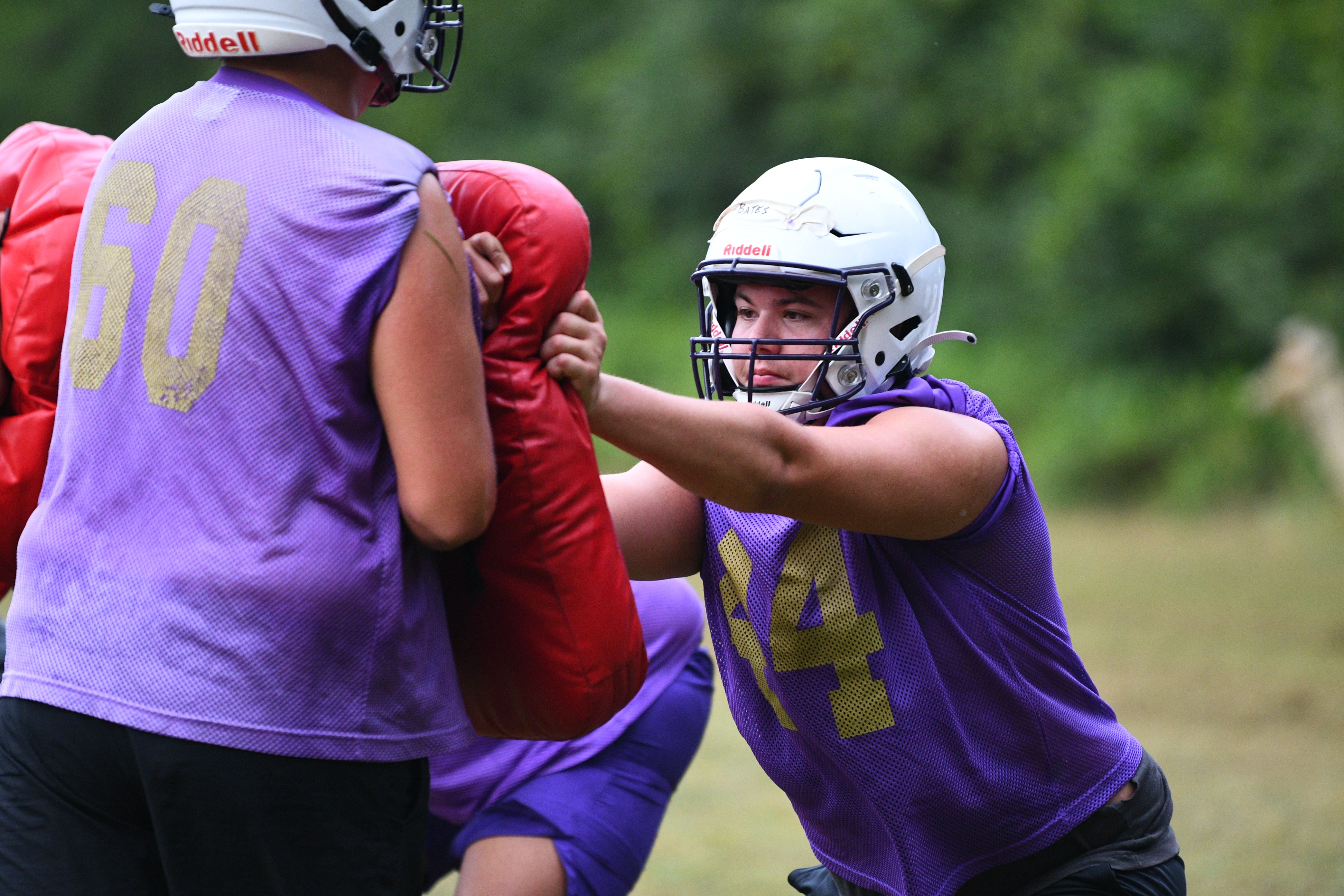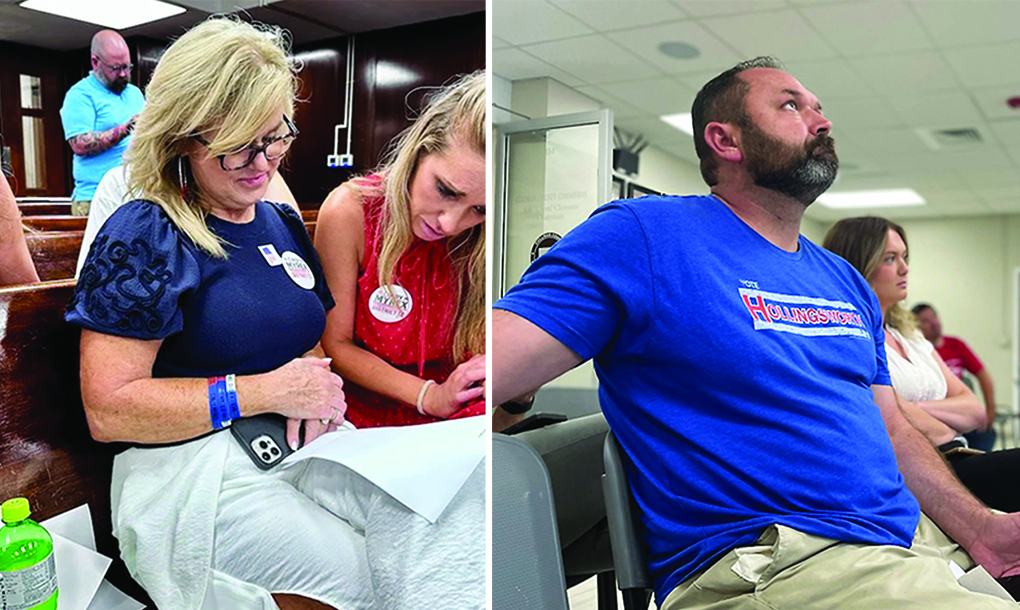Veteran to receive Purple Heart 50 years later
Published 10:11 am Wednesday, May 14, 2008

- Newton J. Duke and his wife Francis Carolyn Duke got married a year after he was released from a POW camp in 1953.
By Melanie Patterson
The North Jefferson News
Fifty years after he was wounded eight times in war, Newton J. Duke will finally receive his Purple Heart.
A Korean War veteran, Duke spent more than two years as a prisoner of war in North Korea.
He was designated to receive a Purple Heart after his release, but it was never presented to him.
On June 7, Duke will formally receive the Purple Heart during a tribute service at Gardendale First Baptist Church.
“It feels great,” Duke said Tuesday with a smile.
There are several criteria for receiving the Purple Heart, one of which is to be wounded or killed in military action.
Duke’s body still bears marks from when he was injured during the war.
There is a scar on his neck where Chinese soldiers tried to behead him with a bayonet.
There is also a mark above Duke’s left eye where he got hit with a rifle.
In addition, Duke was wounded by shrapnel and he sustained other injuries.
Duke and his company arrived in Korea in November 1950.
He was supposed to be a welder for the U.S. Army, but he also was trained to use various rifles.
“They put me in the infantry because we were losing men so fast,” he said.
Duke fought on the front lines for six months.
His entire company, serving under the 23rd Infantry Regimental Combat Team, was captured on May 18, 1951, except for the men who had been killed or badly injured.
His company had run out of ammunition.
“It was a big push the Chinese put on at that time. They just overpowered us,” Duke said.
Duke then saved the lives of 38 wounded men in his company when, through an interpreter, he talked the Chinese into releasing them.
“They were going to kill them,” Duke said. “But they took them back to the lines to go back to the United States.”
There were about 35 men remaining in Duke’s company.
It took three months for Chinese forces to march the men to the town of Ch’ongsonjin, or POW Camp No. 3.
“The biggest problem we had was airplanes and artillery – our own,” said Duke. U.S. forces were bombing the area, not knowing that Duke and the other POWs were there.
About half of the American troops starved to death during the three-month march, according to Duke.
In August 1953, the 20 remaining men in Duke’s company arrived at the POW camp.
They were held for 28 months.
“They tried brainwashing us about how good communism was over what they called ‘imperialism,” said Duke. “It didn’t work.”
When that failed, Duke and the other U.S. men were put to work.
“They had us sawing logs, and then gathering crops,” he said. “But they didn’t do that long because we ate more than we brought in.”
Duke and the other men were fed only twice a day. They ate turnips and a small bowl of sorghum seeds for both meals.
When Duke was captured, he had just turned 21 years old and weighed 200 pounds.
Upon his release on Aug. 13, 1953, after the signing of the Korean War armistice on July 27, 1953, Duke was 23. His weight had dropped to 115 pounds.
When Duke finally arrived home in September 1953, someone he had never met was waiting for him at the Birmingham Airport.
Francis Carolyn Helm had written several letters to Duke while he was imprisoned in the POW camp, but Duke had received only one of the letters.
Helm knew Duke’s parents. She learned of him when she saw his picture at their house one day.
Helm, who was still in high school, and her uncle were there to pick up Duke at the airport.
Duke and Helm were married 10 months later. They will soon celebrate 54 years of marriage.
The Dukes live in Palmerdale. They have four children, 21 grandchildren and 10 great-grandchildren.
Duke will be honored at Gardendale First Baptist Church on June 7 at 1 p.m.
Fifty years after he earned it, Lt. Gen. Kevin T. Campbell, commanding general of the Army Space and Missile Defense Command at Redstone Arsenal in Huntsville, will present the Purple Heart to Duke.






